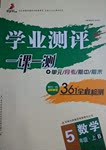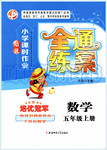题目内容
2. He pretended to read when the teacher approached him.
2. read改为be reading

练习册系列答案
 学业测评一课一测系列答案
学业测评一课一测系列答案 小学课时作业全通练案系列答案
小学课时作业全通练案系列答案
相关题目
题目内容
2. He pretended to read when the teacher approached him.
2. read改为be reading

 学业测评一课一测系列答案
学业测评一课一测系列答案 小学课时作业全通练案系列答案
小学课时作业全通练案系列答案